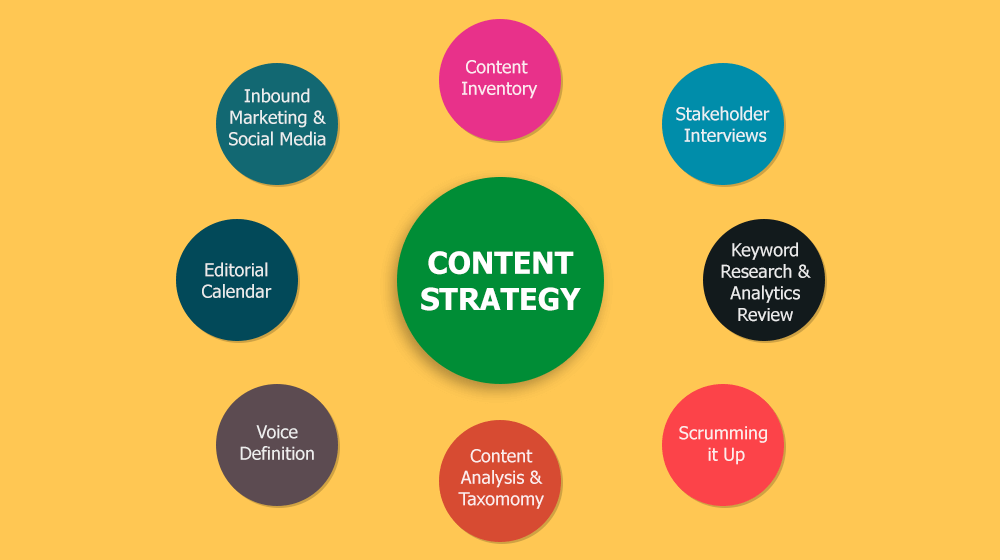The Importance of Content Strategy in Digital Marketing: A Comprehensive Guide
In the fast-paced digital landscape of today, content has emerged as the cornerstone of successful marketing strategies. From enhancing brand visibility to driving customer engagement and generating leads, content plays a pivotal role in shaping the online presence of businesses. However, creating and disseminating content without a strategic approach can lead to inefficiencies and missed opportunities. This is where content strategy comes into play—a systematic plan that guides the creation, distribution, and management of content to achieve specific business goals.
What is Content Strategy?
Content strategy involves planning, developing, and managing content in a way that aligns with overarching business objectives. It encompasses the entire lifecycle of content—from ideation and creation to publication, distribution, and analysis. A well-defined content strategy not only ensures consistency in messaging but also enhances the effectiveness of marketing efforts by targeting the right audience with the right content at the right time.
Key Components of a Content Strategy:
- Audience Research and Persona Development: Understanding your target audience is fundamental to crafting relevant and engaging content. Content strategists conduct thorough research to identify audience demographics, preferences, behaviors, and pain points. This information is used to create buyer personas—semi-fictional representations of your ideal customers—that guide content creation efforts.
- Content Planning and Editorial Calendar: A strategic content plan outlines the types of content to be created, the topics to cover, and the publishing schedule. An editorial calendar helps maintain consistency and ensures that content is aligned with seasonal trends, product launches, and marketing campaigns.
- SEO and Keyword Strategy: Search engine optimization (SEO) is crucial for improving organic visibility and driving traffic to your website. Content strategists conduct keyword research to identify relevant search terms and integrate them naturally into content to improve search engine rankings.
- Content Creation and Optimization: High-quality content that provides value to your audience is paramount. Content strategists collaborate with writers, designers, and other stakeholders to produce engaging and informative content, whether it's blog posts, articles, videos, infographics, or social media posts. Content is optimized for readability, SEO, and conversion.
- Content Distribution and Promotion: Creating great content is only half the battle; ensuring it reaches your target audience is equally important. Content strategists develop distribution plans that leverage various channels such as social media platforms, email newsletters, influencers, and partnerships to amplify reach and engagement.
- Performance Monitoring and Analytics: Measuring the success of your content strategy requires ongoing monitoring and analysis. Content strategists track key performance indicators (KPIs) such as website traffic, conversion rates, engagement metrics, and social shares to assess the effectiveness of content and make data-driven adjustments as needed.
Benefits of a Robust Content Strategy:
- Enhanced Brand Awareness: Consistent and valuable content helps establish your brand as a thought leader in your industry, fostering trust and credibility among your audience.
- Improved SEO and Organic Traffic: Strategic use of keywords and SEO best practices can significantly boost your website's visibility in search engine results, driving organic traffic and reducing reliance on paid advertising.
- Increased Engagement and Conversions: Relevant and compelling content resonates with your audience, encouraging them to interact with your brand, share content, and ultimately convert into customers.
- Cost Efficiency: Investing in a well-planned content strategy yields long-term benefits by reducing customer acquisition costs and nurturing leads through the sales funnel.
- Adaptability and Scalability: A documented content strategy allows businesses to adapt to changing market conditions, scale operations, and align content efforts with evolving business goals.
Case Studies and Examples:
Many successful brands attribute their digital marketing success to effective content strategies. For instance, HubSpot's comprehensive content strategy includes a wealth of educational resources, tools, and blog posts that attract and engage marketers and sales professionals worldwide. Similarly, Red Bull's content strategy focuses on extreme sports and adventure, creating a lifestyle brand that resonates with its target audience.
A well-crafted content strategy is not just a nice-to-have but a must-have component of any digital marketing arsenal. It serves as a roadmap for creating meaningful connections with your audience, driving measurable results, and achieving sustainable business growth. By investing in audience research, strategic planning, content creation, distribution, and performance analysis, businesses can unlock the full potential of their content marketing efforts and stay ahead in today's competitive landscape.
As digital channels continue to evolve, the role of content strategy will only become more critical in shaping brand perception and driving customer engagement. Embrace the power of content strategy to transform your digital marketing efforts and propel your business towards success in the digital age.






































